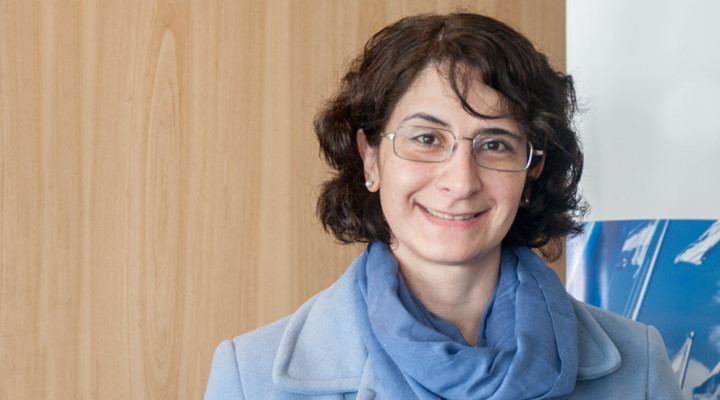SOCIAL SCIENCES AND THE HUMANITIES
CONICET researcher awarded in Italy
Fernanda Bravo Herrera received a prize for her contribution to the dissemination of Italian culture in the world.
In the 43rd edition of the Ennio Flaiano International Prize, Fernanda Bravo Herrera, CONICET associate researcher at the Instituto de Literatura Argentina “Ricardo Rojas” of the Facultad de Filosofía y Letras de la Universidad de Buenos Aires (FFyL, UBA), received the Flaiano International Prize – Italian Culture in the World for her book Huellas y recorridos de una utopía. The contest was organized by the Associazione Culturale Ennio Flaiano and the Centro Nazionale di Studi Dannunziani in collaboration with the Ministry of Foreign Affairs of Italy and the Italian Cultural Institutes abroad.
These prizes that honor Ennio Flaiano on areas such as literature, cinema, theater and television have been given since 1973, but in 2002 a new award was added to recognize works on Italian culture that were made outside the Península. After 16 editions, this is the first time a work made in Latin America, and in a Spanish speaking country, is awarded.
In order to compete for this international prize, the 83 Institutes for Italian Culture first select one work. Bravo Herrera’s book was chosen by the Instituto di Cultura di Buenos Aires, where it was published. After that, one committee of Italian intellectuals and academics is in charge of the selection of three works without establishing a precise hierarchy between them. In this case, the other works that were chosen were the ones that belonged to Armando Maggi, who lives in Chicago (USA) and Miriam Oravcová from Bratislava (Slovakia).
Huella y recorridos de una utopía, which was published in 2015, is about Italian emigration and its effects on the popular consciousness of the European country, that is to say, on the marks of that emigration process in the formation of the national identity of Italians. For this task, the author analyzed one large and heterogeneous corpus that includes literary and extra literary texts.
“For me this prize is a great recognition for my work and all the people who supported me in Italy and Argentina. I hope this award can provide more visibility and open the door to new researchers who study Italian culture. Personally, this prize is like a homage to my mother, my grandparents and all Italian immigrants who believed in Argentina and chose it as their second homeland”, the researcher affirmed.
